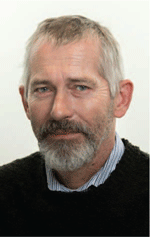A regulator’s perspective: well integrity considerations in decommissioning
Claire Hick A B , Derrick O’Keeffe A and Mark Bourne AA National Offshore Petroleum Safety and Environmental Management Authority (NOPSEMA), 58 Mounts Bay Road, Perth, WA 6000, Australia.
B Corresponding author. Email: claire.hick@nopsema.gov.au
The APPEA Journal 60(2) 633-636 https://doi.org/10.1071/AJ19102
Accepted: 11 February 2020 Published: 15 May 2020
Abstract
With several petroleum fields in offshore Australia approaching the end of their economic life, it is widely recognised that there is an upcoming wave of well decommissioning. Decommissioning of wells (also known as ‘plug and abandonment’ or well abandonment) presents well integrity and, in some instances, well control challenges. Deferral of well abandonment is likely to make the task more difficult; wells are continually ageing and, meanwhile, the benchmark for what constitutes a compliant abandonment tends to get higher over time. It is a common objective of industry, government and society that wells are decommissioned properly so that they do not present future safety or environmental risk. Decommissioning a well safely requires that it has been maintained properly with a reliable dataset and documentation history. A clear framework for managing and monitoring well integrity in all phases of the well lifecycle is a prerequisite, as demonstrated in international standards and guidelines such as ISO 16530. Well decommissioning requires collaboration across industry partners to foster research and development, reduce risk and lower cost.
Keywords: well abandonment, well decommissioning.

Claire Hick (Wilhelm) is a Well Integrity Specialist at NOPSEMA (National Offshore Petroleum Safety and Environmental Management Authority). Her qualifications include a Bachelor of Engineering (Resource Engineering – Oil and Gas, Hons) from the University of Western Australia. Claire has worked in Australia and internationally as a drilling engineer, production engineer, well integrity engineer and interface coordinator before joining NOPSEMA. Claire’s interest in well integrity and well control began early in her career after being assigned to an oilfield with numerous well integrity challenges. Claire is a long-time member of the Society of Petroleum Engineers (SPE). |

Derrick O’Keeffe is the Head of Safety and Integrity for NOPSEMA, Australia’s independent offshore regulator. He holds a BSc (Hons) in Chemical Engineering and an MBA. He has 37 years of engineering, commercial, management and Director experience in oil and gas in Australia, Iran, UAE, Bangladesh, Africa, USA and the UK. Derrick is a member of the Society of Petroleum Engineers, graduate of the Australian Institute of Company Directors, life member and past President of the Petroleum Club of Western Australia, where he contributes to short courses on petroleum. He is a regular witness at Australian government parliamentary senate hearings and inquiries. |

Mark Bourne was appointed as NOPSEMA’s Well Integrity Manager in August 2018, following four years as a NOPSEMA Well Integrity Specialist. Prior to joining NOPSEMA, Mark had 26 years of upstream oil and gas industry experience, working on- and offshore in Australia, Holland, Germany, Libya and Qatar, starting as a mud logger and working up through various drilling operations and engineering roles to Senior Drilling Operations Engineer with a major operating company. Mark holds a Bachelor of Science (Hons) from the University of Wolverhampton in Applied Sciences. |
References
Australian Government (2011). Offshore petroleum and greenhouse gas storage (Resource Management and Administration) regulations 2011. Available at https://www.legislation.gov.au/Details/F2011L00647 [verified 19 February 2020].BSEE (2018) NTL No. 2018-G03 Idle Iron Decommissioning Guidance for Wells and Platforms. (US Department of the Interior, Bureau of Safety and Environmental Enforcement (BSEE)). Available at https://www.bsee.gov/sites/bsee.gov/files/notices-to-lessees-ntl//ntl-2018-g03.pdf [verified 13 March 2020].
Clyne, I., and Jackson, N. (2014). Abandonment of 19 subsea wells in the Jabiru/Challis Fields. In ‘IADC/SPE Asia Pacific Drilling Technology Conference’, 25–27 August, Bangkok, Thailand. (Society of Petroleum Engineers.)
ISO (2017). ‘ISO 16530-1 Well Integrity Life Cycle Governance.’ (International Organization for Standardization.)
King, G. (2009). ‘Plug and Abandonment Basics.’ (George E. King Engineering.)
NOPSEMA (2019). Statement of expectations, October 2019. Available at https://www.nopsema.gov.au/assets/Corporate/A548477.pdf [verified 19 February 2020].
OGA (2018). Guidance for applications for suspension of inactive wells. The Oil and Gas Authority, UK. Available at https://www.ogauthority.co.uk/media/5108/oga-suspended-wells-guidance.pdf [verified 19 February 2020].
Standards Norway (2013) NORSOK Standard D-010:2013 Well integrity in drilling and well operations. Rev. 4. (Standards Norway).
Vrålstad, T., Saasen, A., Fjær, E., Øia, T., Ytrehus, J. D., and Khalifeh, M. (2019). Plug & abandonment of offshore wells: ensuring long-term well integrity and cost-efficiency. Journal of Petroleum Science Engineering 173, 478–491.
| Plug & abandonment of offshore wells: ensuring long-term well integrity and cost-efficiency.Crossref | GoogleScholarGoogle Scholar |
Zhang, J., Mahbod, P., Shafer, R., Mueller, D., and Anderson, C. (2019). Multi-string isolation logging: a cost effective solution for P&A. In ‘SPE Norway One Day Seminar’, 14 May, Bergen, Norway. (Society of Petroleum Engineers.)


